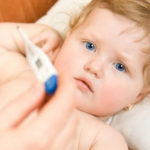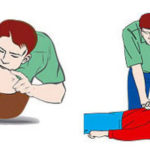It can be scary if your baby accidentally chokes on water during bath time. Here are some detailed instructions on how to administer first aid to an infant in such a situation:
Note: This article is for reference only and does not replace medical diagnosis or treatment.
1 Signs of an Infant Choking on Water During Bath
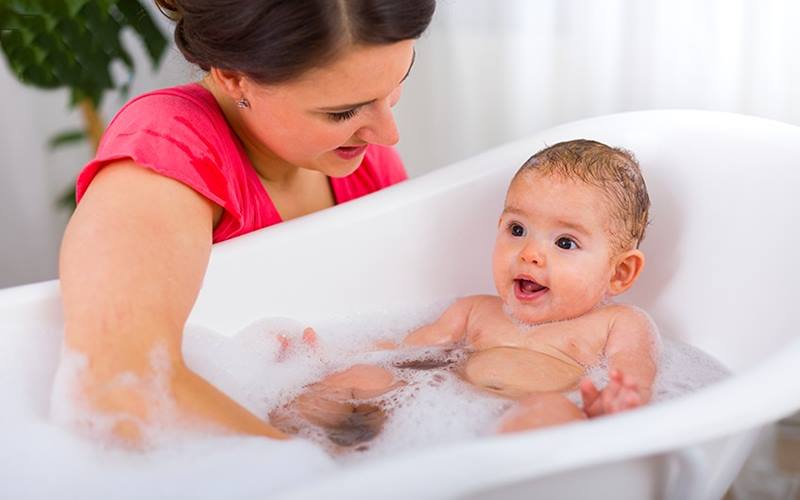 Signs of an Infant Choking on Water During Bath
Signs of an Infant Choking on Water During Bath
While bathing your baby, if you notice signs such as violent coughing and their skin turning bluish-purple, your baby may be choking on water. It is important to remain calm and not pick up or carry the baby, as this could cause water to enter deeper into their respiratory tract and worsen their breathing difficulties.
2 First Aid for an Infant Choking on Water During Bath
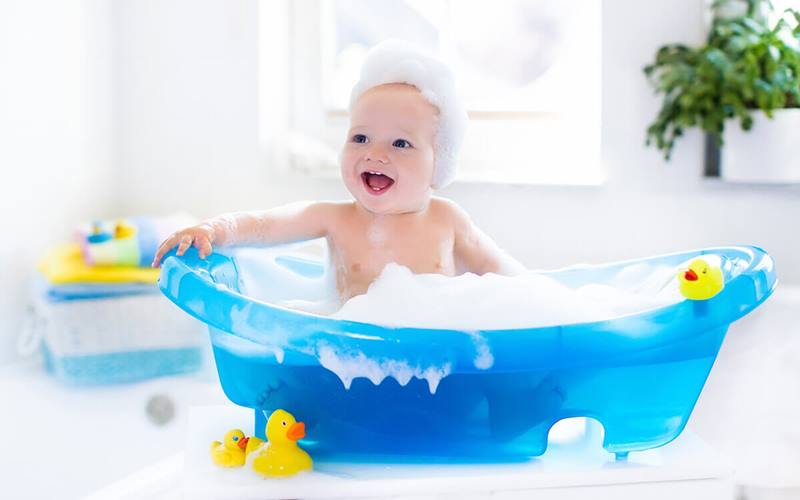 First Aid for an Infant Choking on Water During Bath
First Aid for an Infant Choking on Water During Bath
If your infant is choking on water during bath time, remain calm and start administering first aid with the following steps:
- First, place the baby face down on your palm, with their head lower than their body. Use the heel of your hand to deliver five quick and forceful back blows between the shoulder blades in a downward sliding motion to increase chest pressure and expel water.
- If you see water coming out of the baby’s nose or mouth, quickly clear the airways by sucking out the water. Do not use your fingers to sweep their throat as this may cause scratches.
- If the baby is still struggling to breathe and remains bluish-purple, turn them over, keeping their head and body straight. Then, use your index and middle fingers to press firmly on their chest five times in the center of the breastbone. If the baby’s color returns to normal, you have been successful.
- If the above two methods do not work, continue alternating between back blows and chest compressions until the baby’s condition improves.
- Finally, take the baby to a hospital or healthcare facility as soon as possible for a check-up.
3 Safe Bathing Guidelines for Infants
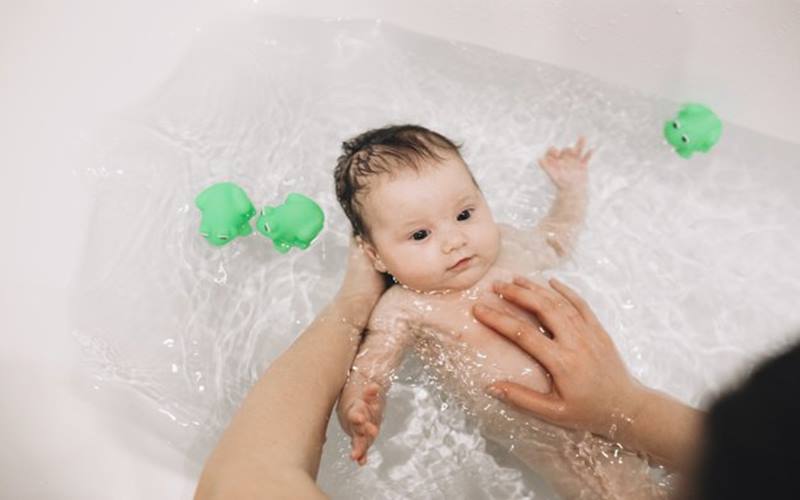 Safe Bathing Guidelines for Infants
Safe Bathing Guidelines for Infants
When bathing an infant, follow these safety guidelines to prevent water choking:
- Bathe your baby between 9 – 10 am or 1 – 2 pm as these are the warmest times of the day.
- Maintain an ideal room temperature of 28 – 30°C during bath time, and ensure there is no draft in the bathing area.
- Limit bath time to approximately 5 minutes, and less than 1 minute for premature babies.
- Use only mild baby soaps or shampoos designed for sensitive infant skin.
- Never leave your baby unattended during bath time.
4 Times to Avoid Bathing an Infant
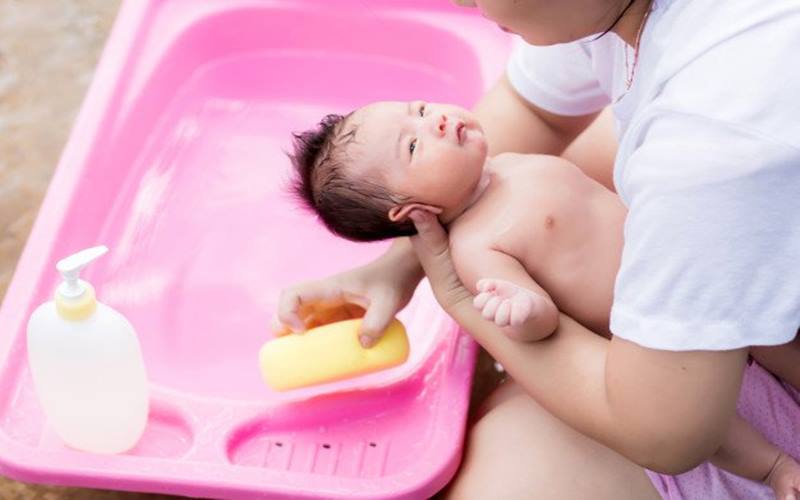 Times to Avoid Bathing an Infant
Times to Avoid Bathing an Infant
Infants have fragile health, so it is important to avoid bathing them in the following situations:
- Right after feeding: Bathing a baby right after feeding can cause them to spit up milk, and it may also cause blood vessels to dilate, leading to increased blood flow to the skin and reduced blood flow to the stomach, affecting nutrient absorption.
- When they are hungry: Low blood sugar levels when a baby is hungry can lead to insufficient energy during bath time, possibly resulting in dizziness, fainting, or even death.
- Immediately after waking up: Bathing a baby right after they wake up can cause a drop in body temperature and increase the risk of respiratory infections.
- After vaccination: Vaccination sites are prone to infection, so it is best to avoid bathing your baby right after they receive their shots.
This article has provided you with first aid instructions for an infant choking on water during bath time. We hope that you can now better protect your baby from such dangerous situations in daily life.
Source: Marrybaby.vn
Tips for Parents on Dealing with Common Ailments in Young Children
Winter can be a particularly hard time for little ones when it comes to keeping healthy. With the decrease in temperature and shorter days, minor illnesses that often affect children can start to present themselves. To ensure your child remains in good health and to learn how to tackle minor ailments efficiently, here are 10 tips for parents to take into consideration.
Wrong first aid, unintentionally harming children
Not only are there many dangers lurking in ponds and lakes, but recently there have been numerous heartbreaking incidents of children drowning right at home due to falling into a bucket or tub of water that their parents left out. What’s worth mentioning is that some children have tragically lost their lives because of adults administering incorrect first aid.
























